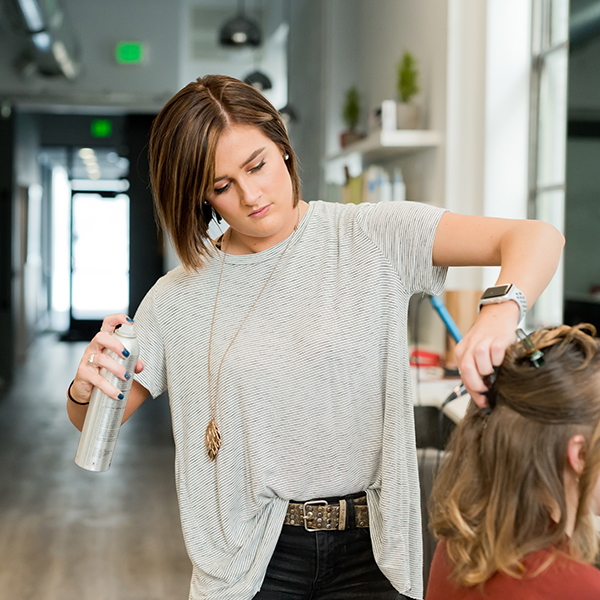WHAT IMPACT DO YOU SEE OR THINK WE’LL SEE ON THE BEAUTY INDUSTRY?
Steve Sleeper, Executive Director of the Professional Beauty Association explains, “There will, no doubt, be an impact on the beauty industry due to COVID-19. Thus far, we’ve seen several industry events be cancelled or postponed, as well as a decline in salon visits in infected communities. The full extent of what this will look like has yet to be seen.”
WHAT ARE YOUR TOP CONCERNS IN REGARDS TO THE EFFECT OF CORONAVIRUS IN THE SALON ENVIRONMENT?
“Our top concerns are the health and wellness of the individuals in the industry, their clients and customers as well as the potential economic impact on the salons and licensed beauty professional. Aside from maintaining health as the most integral priority, we want to help ensure that the salon world is minimally impacted economically.
Currently, the CDC has not recommended quarantines for individuals other than those who have tested positive for COVID-19 or those who have been potentially exposed to the virus. As long as salon professionals are practicing safety and hygiene precautions and related communications, the CDC has maintained business as usual for the time being.
Historically, the professional beauty industry has thrived, even through challenging times. A smart way to ensure that the salon industry is prepared for whatever the economy brings is to have a strong cash-flow plan in place. The PBA offers roadmaps and business building tools for its members to help gain fiscal stability — even through tough times.
PBA also has in place a tele-health insurance program at a reduced rate for Members of $10/month. This service allows our Members to virtually connect with board certified professionals for medical consultations, questions, and concerns. For more information on this benefit as well as others, please visit probeauty.org.”
ARE YOU SUGGESTING STYLISTS AND PROFESSIONALS TAKE SPECIFIC PRECAUTIONS TO PREVENT THE SPREAD?
“The health and well-being of both the professional salon industry and its clientele is a top priority, and the best way to help ensure that is to practice great salon and personal hygiene always — not just during this public health emergency, but always. This is a great example of why beauty professionals are licensed and that salons are regulated, inspected and have oversight by a state level regulatory body. It’s all there to ensure that the health and safety of everyone in the salon environment and their public customers are protected”
While the CDC has shared that for most of the American public, the immediate health risk is considered low, below is a list of easy-to-follow practices that the PBA recommends salon professionals follow to help prevent the spread of COVID-19, as well as seasonal colds and flu, based on collective information from both the CDC and WHO:
- Disinfection: Barbering and cosmetology State Boards direct that proper cleaning and disinfection of non-porous surfaces are mandatory at all times — from tools and implements to areas with counter tops, treatment rooms, back bars, reception areas, and styling stations. Be sure to strictly follow this -All states require that disinfection be done according to the manufacturer’s instructions for the full contact time on the label. Many states require immersion, and some will allow the use of disinfecting sprays and wipes. Disinfectants should be bactericidal, virucidal and fungicidal.
- Wash your Hands: The CDC recommends washing your hands with soap and water for at least 20 seconds to help prevent the spread of germs. Wash your hands before and after every client, after eating, using the restroom, and after blowing your nose, coughing or sneezing. If you work in a state where it is allowed, keep a 60% alcohol-based hand sanitizer at your station, as well.
- Stay Home: Try to keep your immune system strong — lots of vitamin C, restful sleep, and drink ample water. However, if you — or your client — gets sick, the CDC strongly recommends to stay home. As an added measure, the PBA recommends offering your clientele a “sickness cancellation policy” during this time that does not penalize any client for cancelling their appointment due to illness. In addition, salons should allow employees to stay home without penalty when sick.
- Well-stocked Salon: Make sure your salon has tissue, soap, paper towels, disinfectant and alcohol-based hand cleansers to encourage healthful habits.
- Hands Off: During the cold and flu season, shaking hands or giving hugs to your clients and co-workers is not a good idea. Rather, tell your client that you’re practicing good hygiene and following the“hands off” protocol to help keep everyone healthy. Also, keep your hands “off” and away from your face, as that’s an easy path for transmission.
- Signage and Communication: Post signage at the front desk, as well as in the salon break room reminding guests and employees about the importance of hygiene standards such as hand washing, sanitizer, wiping down stations after use, covering coughs, and hands off policies. Also, it’s important to share with your clientele the precautions your salon is taking to do its part in helping to prevent the spread of the coronavirus — during online bookings, on the phone, via text, and in person.
- CDC: Follow the CDC for facts as they become available — this continues to be the best source for information; www.cdc.gov.
What are the main symptoms of COVID-19?
The most common symptoms of COVID-19 are fever, tiredness, and dry cough. Some patients may have aches and pains, nasal congestion, runny nose, sore throat or diarrhea. These symptoms are usually mild and begin gradually. Some people become infected but don’t develop any symptoms and don’t feel unwell. Most people (about 80%) recover from the disease without needing special treatment. Around 1 out of every 6 people who gets COVID-19 becomes seriously ill and develops difficult breathing. Older people, and those with underlying medical problems like high blood pressure, heart or diabetes, are more likely to develop serious illness. People with fever, cough and difficulty breathing should seek medical attention.


